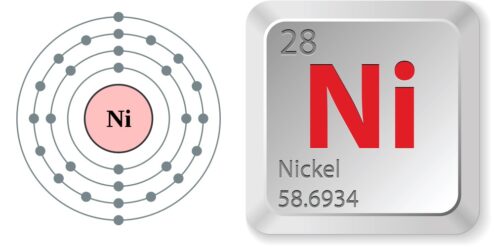Introduzione: Nickel allergy is a common form of contact dermatitis, an immune response to the exposure to nickel. Symptoms can range from mild, such as skin redness and itchiness, to severe, like blisters and rashes. Managing nickel allergy often involves avoiding contact with items containing nickel, but this can be challenging given the widespread use of this metal. Recent research, however, suggests that certain vitamins may help alleviate the symptoms and improve the body’s response to nickel. This article explores the role of vitamins in allergic reactions, particularly in relation to nickel allergy.
Understanding Nickel Allergy: An Overview
Nickel allergy is a type of contact dermatitis that occurs when the skin reacts to the nickel found in many everyday items, such as jewelry, coins, and even some food and water. Once sensitized, the immune system may overreact to further exposure, resulting in an allergic reaction. Symptoms can vary in severity, from mild skin irritation to severe rashes and blisters. In some cases, nickel allergy can lead to chronic skin conditions, such as eczema. The prevalence of nickel allergy is increasing, particularly among women and individuals with a history of ear or body piercing.
The Role of Vitamins in Allergic Reactions
Vitamins play a crucial role in maintaining the body’s immune system. They help regulate immune responses, reducing inflammation and promoting healing. In the context of allergies, certain vitamins can help modulate the body’s reaction to allergens, potentially reducing the severity of symptoms. For instance, Vitamin C is known for its anti-inflammatory properties, while Vitamin D can modulate the immune system and reduce the risk of allergies. Vitamin E, on the other hand, can protect the skin from oxidative stress, a common trigger for allergic reactions.
Essential Vitamins for Combating Nickel Allergy
Research suggests that certain vitamins may be particularly beneficial for individuals with nickel allergy. Vitamin C, for instance, can help reduce the inflammatory response associated with nickel allergy. Vitamin D, meanwhile, may help regulate the immune system’s response to nickel, potentially reducing the risk of severe reactions. Vitamin E can help protect the skin from the oxidative stress caused by nickel exposure. Additionally, Vitamin B6 has been shown to reduce the severity of nickel-induced contact dermatitis in some studies.
How to Incorporate Beneficial Vitamins into Your Diet
Incorporating these beneficial vitamins into your diet can be achieved through careful meal planning. Foods rich in Vitamin C include citrus fruits, strawberries, and bell peppers. Vitamin D can be obtained from fatty fish, fortified dairy products, and sunlight. Foods high in Vitamin E include nuts, seeds, and spinach. Meanwhile, Vitamin B6 can be found in foods like chickpeas, tuna, and bananas. It’s important to note, however, that individuals with severe nickel allergy may need to avoid certain foods, like whole grains and legumes, which can contain traces of nickel.
Case Study: Vitamin Therapy for Nickel Allergy
A recent case study involving a woman with severe nickel allergy demonstrated the potential benefits of vitamin therapy. After implementing a diet rich in Vitamins C, D, E, and B6, the woman experienced a significant reduction in her symptoms. Her skin lesions healed, and she reported a decrease in itchiness and discomfort. While more research is needed, this case study suggests that vitamin therapy could be a promising approach to managing nickel allergy.
Future Research: Vitamins and Nickel Allergy Management
While preliminary research suggests that vitamins may help manage nickel allergy, more studies are needed to confirm these findings and understand the mechanisms involved. Future research could explore the potential benefits of other vitamins and minerals, the optimal dosages for allergy management, and the potential interactions between vitamins and conventional allergy treatments. Furthermore, clinical trials could help establish the safety and efficacy of vitamin therapy for nickel allergy.
Conclusioni: Nickel allergy can be a challenging condition to manage, given the widespread use of nickel in everyday items. However, emerging research suggests that certain vitamins may help alleviate symptoms and improve the body’s response to nickel. Incorporating these vitamins into your diet could potentially help manage nickel allergy, although more research is needed to confirm these findings and establish optimal treatment protocols.
Per approfondire:
-
American Academy of Dermatology: Nickel Allergy – This article provides a comprehensive overview of nickel allergy, including its causes, symptoms, and treatment options.
-
National Institutes of Health: The Role of Vitamins and Minerals in Energy Metabolism and Well-Being – This scientific paper discusses the role of vitamins in maintaining immune function and overall health.
-
Journal of Investigative Dermatology: Nickel Allergy and Vitamins – This research article explores the potential role of vitamins in managing nickel allergy.
-
The Journal of Nutrition: Vitamin E and Allergic Contact Dermatitis – This study investigates the potential benefits of Vitamin E for allergic contact dermatitis, a condition that includes nickel allergy.
-
The Journal of Allergy and Clinical Immunology: Vitamin D and Allergies – This research article discusses the potential role of Vitamin D in modulating immune responses to allergens.


